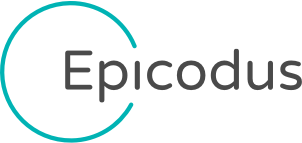Helping our students find great jobs is a huge part of what we do at Epicodus. In fact, it’s our mission. Over the years, we’ve accrued quite a bit of job-hunting knowledge to help set our students apart. In the next few weeks, we’ll be sharing our best tips and tricks for junior developers who are looking for their first jobs.
If you don't already have an up-to-date, professional-looking resume, start by making a LinkedIn profile, which you can later be used to generate a resume. Many employers will even ask for your LinkedIn profile in lieu of a resume. For most people, we suggest you organize your LinkedIn profile as follows:
- Include a recent photo.
- Edit your tagline to something like "Junior web developer", or something similar.
- Create a friendly URL including your name.
- Write a short summary of what you're doing now (learning to code) and why you decided to become a developer. Keep it under five sentences.
- Add a link to your Github profile (and optionally your website) to your summary. The link will show up as a large box, this is OK.
- Move the Projects section just below your summary. Add some projects that you've completed to this section. Include links to the Github code for the project or a live site on Heroku, Github Pages, or another hosting option, if possible. Talk about what the projects do and what technologies were used.
- Next, list your previous jobs under Experience, with a short description of what you did at each role. Be specific and succinct - use concrete numbers and examples, like "Responsible for on-boarding and training two dozen new employees in 3 months", rather than vague statements, like "Fulfilled management duties beyond expectations." If you have more than 3 or 4 previous jobs, just include the most recent ones (unless earlier ones are relevant to the jobs you're applying for).
- Break down past experience descriptions into bullet points. You can easily do this by using the Alt-8 shortcut.
- If you're an Epicodus student, add Epicodus to your Education section, and move that section directly after your Experience section. Write a brief summary of what you're learning and doing at Epicodus. Don't write about what Epicodus is - write about your experience. For example, one student wrote "I'm currently learning how to build web applications with JavaScript, Ruby/Rails, HTML, and CSS. More importantly, I'm learning how to think more like a programmer, write good code, and pick up new languages and technologies." Another wrote: "At Epicodus I've learned how to learn programming languages more than learning any one language for the sake of itself. I've learned how to work towards a programming goal on my own and with others until success happens. I've also learned how quickly I can process a tremendous amount of information that is new and uncomfortable at first, and have it feel comfortable like a worn pair of jeans by the end of a week!" Don't copy these examples - come up with your own that describes your own unique experience.
- In the Skills section, list skills you've learned, like HTML, CSS, JavaScript, jQuery, Ruby, SQL, Ruby on Rails, AJAX, Git, TDD, pair programming, and more that are specific to your own course track.











